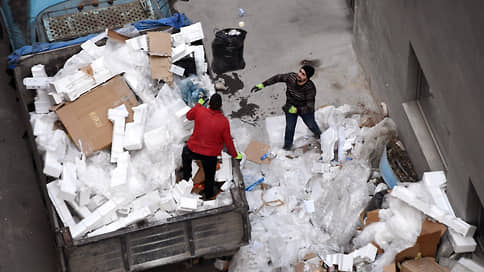The State Duma will once again legalize the extended liability of companies for waste
[ad_1]

The State Duma on Tuesday in the second and third readings will consider an updated government bill designed to make the institution of extended liability of companies for waste operational. The document imposes responsibility for the disposal of packaging on its manufacturers and recyclers. It also provides for the digitalization of the administration of the entire process – judging by the amendments to the second reading, the Russian Environmental Operator, and not Rosprirodnadzor, as previously envisaged, will deal with it.
The final version of the amendments to the law “On Production and Consumption Waste” and to related laws on extended liability of producers and importers of goods and packaging (ERP) has been prepared for the second reading. The profile committee of the State Duma proposed to adopt the agreed bill on Tuesday, which is likely to happen, since Vladimir Putin instructed to do this before August, and July 26 was announced as the last day of the spring session.
Recall that the ROP institution, under which companies must either demonstrably dispose of the waste they produce and import, or pay an environmental fee, has been created since 2010. In 2015, its current version was launched, which did not bring the results expected by officials, either in terms of recycling or in terms of budgetary fees. In fact, it turned out to be unsuitable for administration, which led to the amendment of the regulation (see Kommersant dated April 24).
According to the changes, now the responsibility for the disposal of packaging lies with the manufacturers of its preform. The obligation to comply with the recycling standards by industrialists and importers occurs after the production or import of the goods, and not after its sale. From 2025, packaging manufacturers will be required to dispose of waste from all of its released mass, and from 2026, importers will begin to provide bank guarantees, guarantees or immediately pay an eco-fee when importing goods.
By the second reading, there was a change with the draft, reflecting the long-standing struggle of the leadership of Rosprirodnadzor (RPN) and the public company “Russian Ecological Operator” (PPK REO) for the administration, control and supervision of ROP and disposers through the information system for accounting for waste from the use of goods (FSIS OOIT). Within the framework of this system, a register of “bona fide utilizers” is being created. If in the version of the first reading the RPN had such powers, now they are transferred to the REO, which will decide whether the utilizer gets into the system.
Experts interviewed by Kommersant note the resulting fiscal imbalance in the regulation of EPR and the lack of incentives to reduce waste generation. They note that although the FSIS OOIT was supposed to be transferred for administration from Rosprirodnadzor to the REO, this was not done. “If it does not work in its new capacity, there will be no sense in the bill – without administration there will be no increase in payments to the budget and financing of recycling,” Nikolay Pavlov, chairman of the presidium of the SRO “Association of Waste Recyclers Klever”, is convinced. Sodnom Budatarov, head of the Laboratory for the Study of the Circular Economy of the IGSU RANEPA, admits that the adoption of the law can increase the receipts of the eco-collection, but the concept of its final recipients is blurred, and, for example, there are no procurers who are motivated to collect recyclable materials.
“Without detracting from the importance of the bill, it should be said about the mistakes that have not yet been eliminated, despite the declared focus today not on the payment of eco-fee, but on the independent disposal of waste by companies,” says Natalia Belyaeva, chairman of the commission on ecology of the Council of the Chamber of Commerce and Industry. In particular, judicial practice in disputes between ROP and RPN subjects has shown that when confirming self-disposal, companies do not accept contracts for the sale of waste that they buy to ensure established standards.
[ad_2]
Source link






